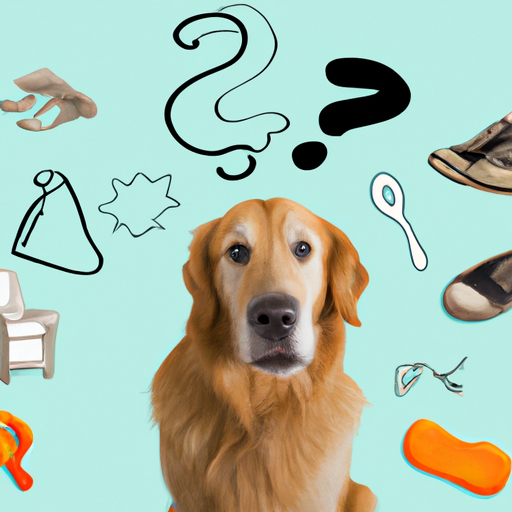Understanding Your Dog’s Behavior
As a caregiver, it’s crucial to understand that your dog’s behavior is a window into their wellbeing. When you notice your pooch constantly gnawing at their paws, it might be more than just a strange habit. Dogs often use this form of self-grooming to relieve discomfort or distress. While it’s normal for dogs to lick and chew their paws occasionally, excessive chewing might be an indication of underlying issues.
Possible Causes of Paw Chewing
There are several reasons why your dog might be excessively chewing their paws. These can range from environmental factors to medical conditions. Here are some common causes:
- Allergies: Just like humans, dogs can suffer from allergies too. These allergies could be a result of food or environmental triggers like pollen, dust mites, or mold. Allergies often cause itching and inflammation, leading to the constant chewing.
- Parasites: Fleas, ticks, or mites can be very irritating for dogs. These tiny creatures can cause severe itching, leading your dog to chew their paws for relief.
- Dry Skin: Dry, chapped paws can result from cold weather or a lack of humidity in the environment. This can lead to discomfort and subsequent chewing.
- Injuries or Pain: If your dog has a thorn, splinter, or a painful wound on their paw, they might chew on it to alleviate the pain.
Identifying the Root of the Problem
To help your furry friend, it’s crucial to determine the root cause of their paw chewing. Here’s a simple table to help you identify potential triggers:
| Potential Trigger | Signs |
|---|---|
| Allergies | Redness, inflammation, bald patches |
| Parasites | Presence of tiny bugs, redness, inflammation |
| Dry Skin | Cracks or chapped skin on paws |
| Injuries | Visible signs of injury, limping |
Seeking Veterinary Assistance
If you’re unable to identify the cause, or if the paw chewing continues despite your efforts, it’s time to seek professional help. A veterinarian can perform a thorough examination, diagnose the issue, and recommend suitable treatment options.
Providing Comfort and Care
In the meantime, there are some steps you can take to provide comfort:
- Regularly check your dog’s paws for any visible signs of distress.
- Keep their paws clean and dry.
- Provide a balanced diet to prevent nutritional deficiencies.
- Use dog boots or socks to protect their paws from harsh weather conditions.
- Offer chew toys to distract them from chewing their paws.
Frequently Asked Questions (FAQs)
Q: Is paw chewing a normal behavior for dogs?
A: Occasional paw chewing is normal for dogs. However, if it becomes excessive, it might be a sign of an underlying issue.
Q: Can I use human lotion on my dog’s paws?
A: No, human lotions might contain ingredients that are harmful to dogs. Use products specifically designed for dogs.
Q: Should I take my dog to the vet immediately if they chew their paws?
A: If the chewing is excessive, causing distress, or if there are visible signs of injury, you should consult a vet.
Q: Can dietary changes help with paw chewing?
A: Yes, sometimes food allergies can cause paw chewing. A diet change might help, but it’s best to consult a vet first.
Remember, as a caregiver, your vigilance can make a world of difference in your dog’s life. Keep an eye out for any unusual behaviors and always provide the care and comfort your furry friend deserves.



